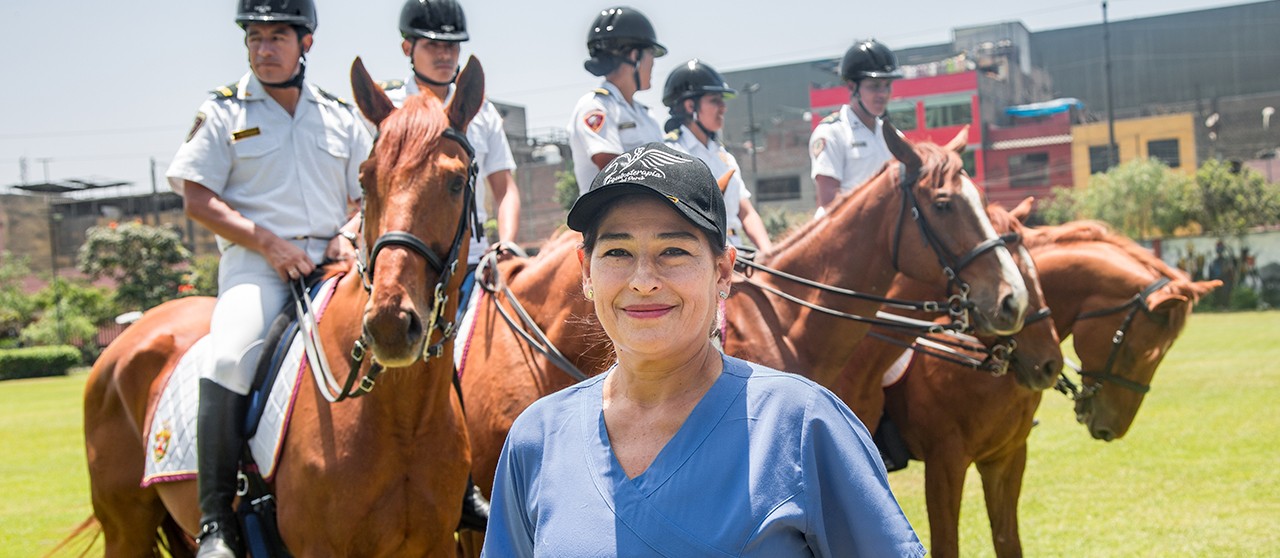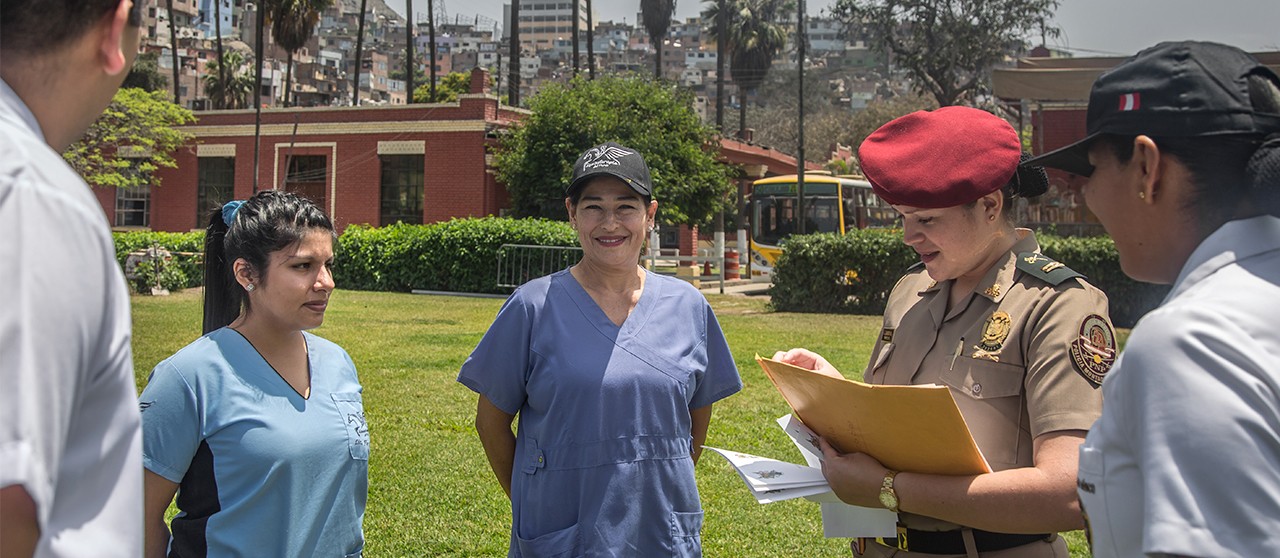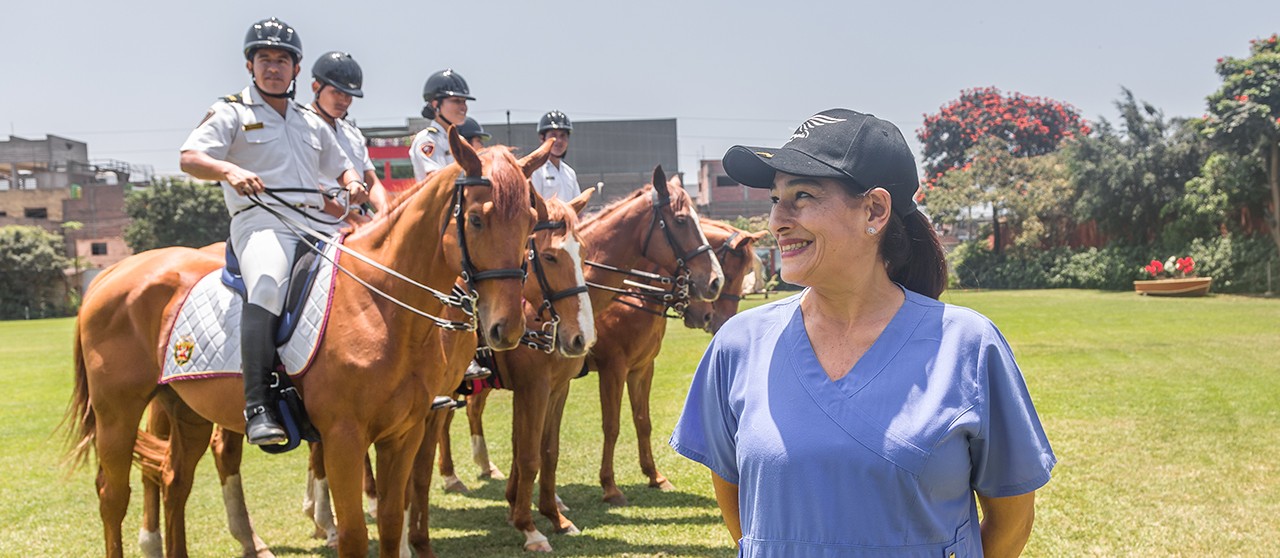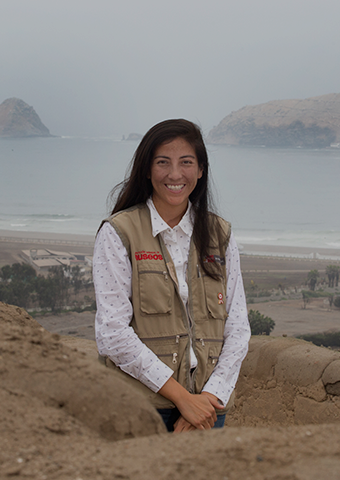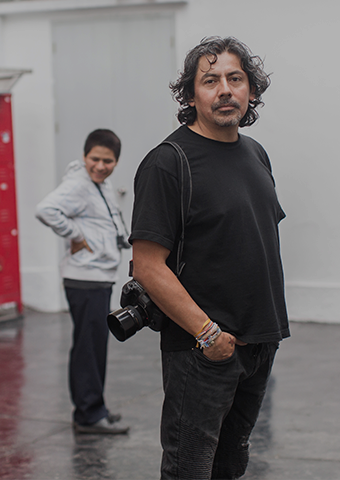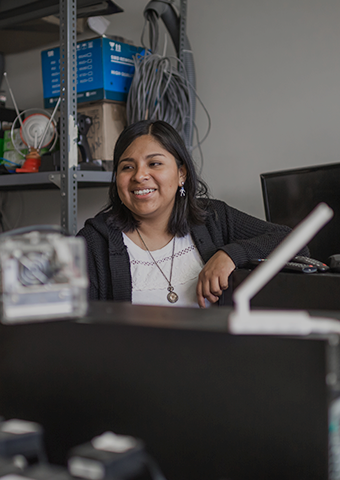“As it is a medical treatment, there are instructions and contraindications, and an age limit; we assist children aged from 3 to 15 years.”
You are not obliged to do this, as you work in Almenara Hospital.
As physiotherapist, I started working with children, but I think they cry too much sometimes. They cry not because something hurts, but because they do not like the movements we make them do. They get bored and exhausted. After I had my first child, I stopped working with children. I could not stand children crying! But that changed when I found out about equitherapy, as it allows me to perform therapy sessions without sadness or tension. It is all different now!
Then, horses heal children, their families and even the therapist.
And police officers too.
Can it do that much?
One horse can help so much! It can create a good environment involving us all; they have also changed me. They gave me the chance to feel more, and they do the same with police offers, who are tough due to their job. When police officers started helping in therapies, they found a new world, a natural and human world full of patience, tolerance, games and understanding! They were surprised by the quantity of children with disabilities. They did not know there were so many.
Police officers’ daily job is full of violence, but helping you for free makes them see a different reality.
¡Exactly! A reality that makes them feel worried.
A reality that makes them more human.
Their humanity, which is usually hidden or inhibited, appears. They stop being so serious and start smiling and playing. That is why they like to contribute to equitherapy.
Who can participate in these therapy sessions? Is it only for children of police officers?
No, this is a social programme for the community, but there are some requirements to be a participant. As it is a medical treatment, there are instructions and contraindications, and an age limit; we assist children aged from 3 to 15 years.
“I am still a therapist without them, but I do not have their energy, their smell, the halo around them, their movements, their warmth, all of which have an impact on our bodies.”
It started in 1999. What experience has marked you the most?
Once a girl from Chimbote came with her dad. She had autism, blindness and cerebral palsy. She was very limited…
How old was she?
She was four years old. What surprised me the most about her is that she would not stop crying. Her life was like that; so, her dad came looking for a chance to improve her child’s situation.
As she was blind, she could not see the horse.
That is right. What surprised me the most was the fact that she would not let anyone touch her face. It was horrible to get her changed or bath her as she shouted. When we started therapy, we approached the horse and felt its warmth and breathing; something caught her attention then but kept crying.
“Something” was different.
Yes. Then we walked and I placed her hands on the horse. She did not want to at the beginning, but something was catching her attention. I got on the horse ―while she was crying― and went on with helping her have contact with the horse. Then, we took her shoes off…
So, she can feel it in all her body.
Children with serious sensory issues have more contact with horses. Once she touched it, she stopped crying. Then, she remained silent. Her dad was surprised; he was walking next to us in silence as his child was crying and crying. When she calmed down, it was so moving that we all shed some tears. That was the first therapy session. Her dad continued coming with her and, when we finished all the therapies, he told me he had never touched his daughter’s face before.
Wow!
She started allowing contact… and then they went back to Chimbote.
What did you feel as a therapist?
A great achievement! The way to achieve it, the element, was the horse; we must use the element appropriately. My goal was to make her lose the aversion for contact, and we achieved it thanks to the horse. I have not seen her since then.
You did not hear from them anymore.
The girl’s dad was so happy that he did not come back anymore (laughs)… That goal was everything he needed. She was very limited…
You showed him that it was possible for them to have a better quality of life.
That is right. The most important thing for him was to touch her for the first time.
What do horses mean to you?
Everything. I’m nothing without them, because they are my element. I am still a therapist without them, but I do not have their energy, their smell, the halo around them, their movements, their warmth, all of which have an impact on our bodies; no other animal is like a horse.
That is why you keep performing this work.
Yes. This programme is like my child; I will never leave it. It has become a part of me.


